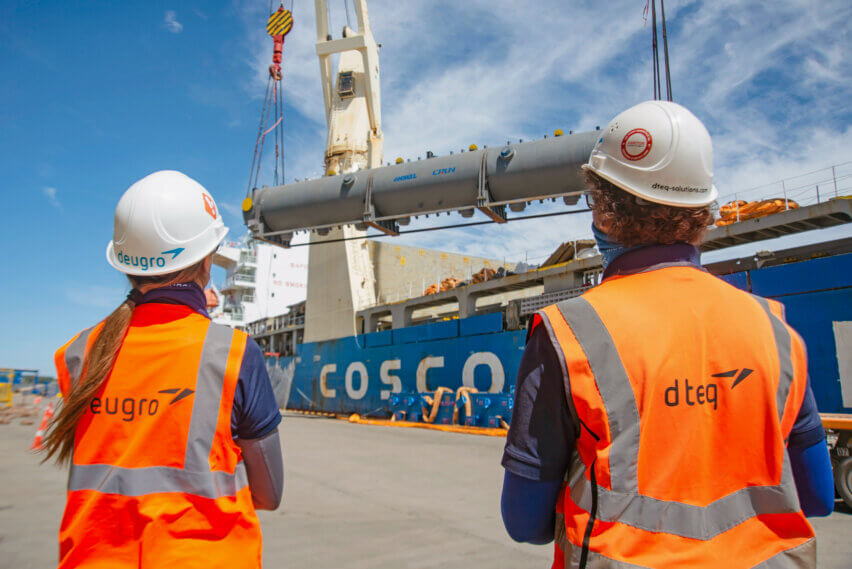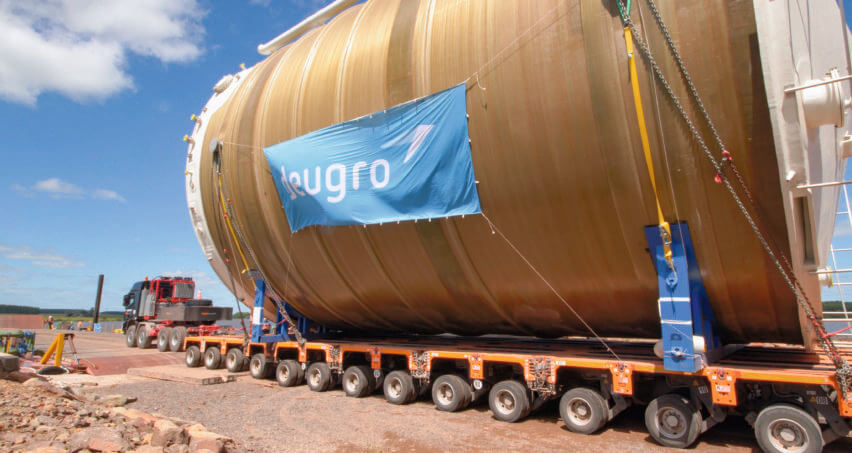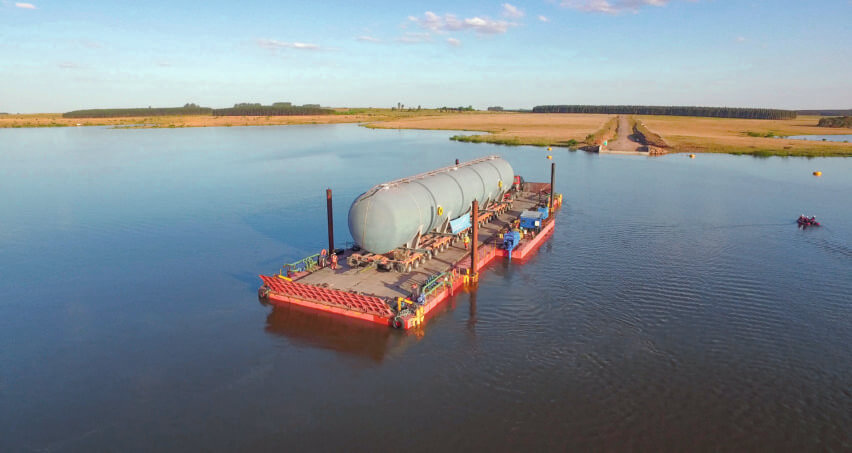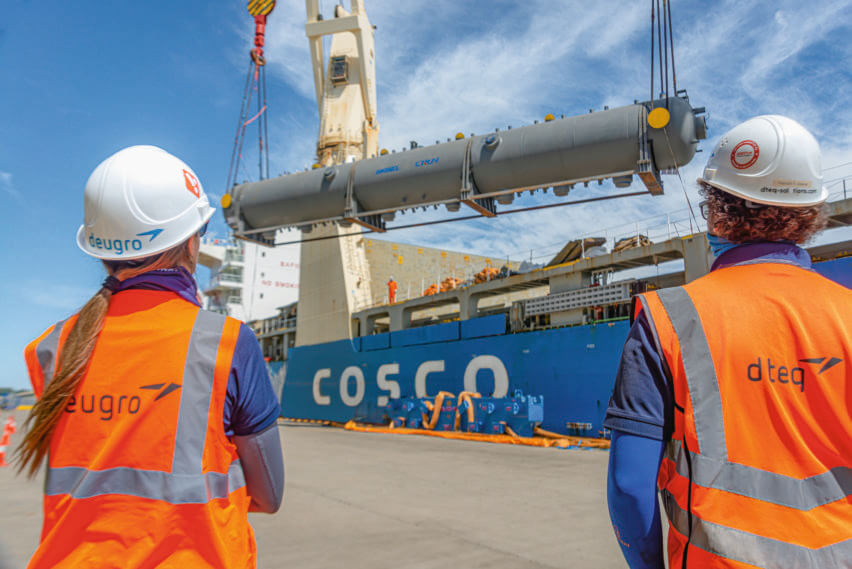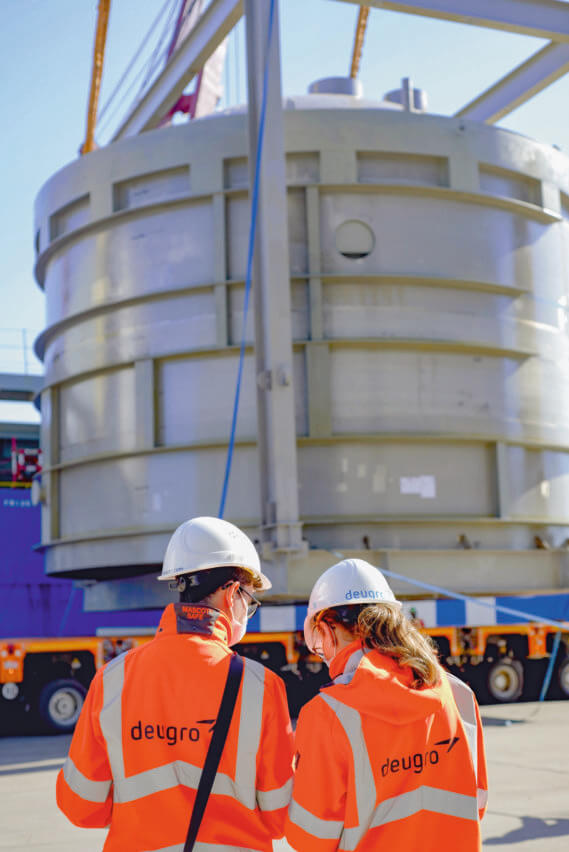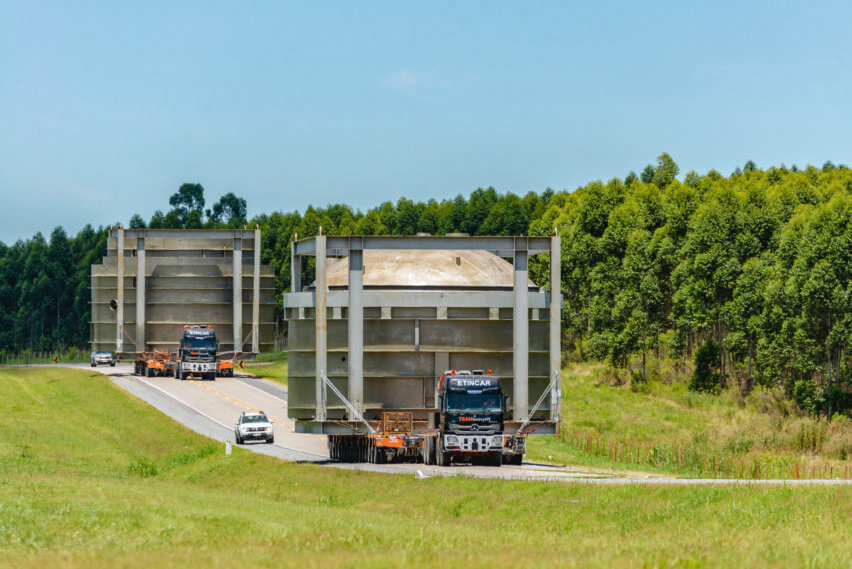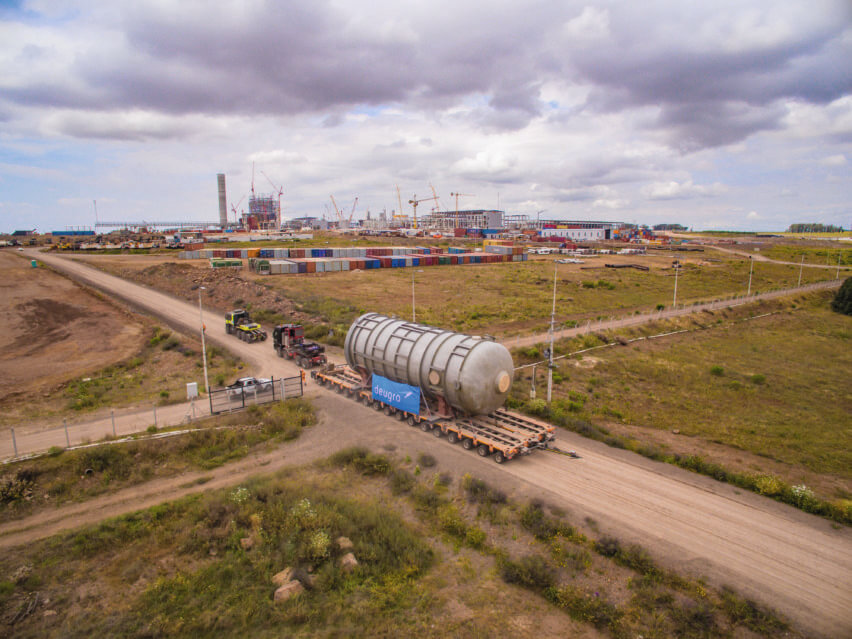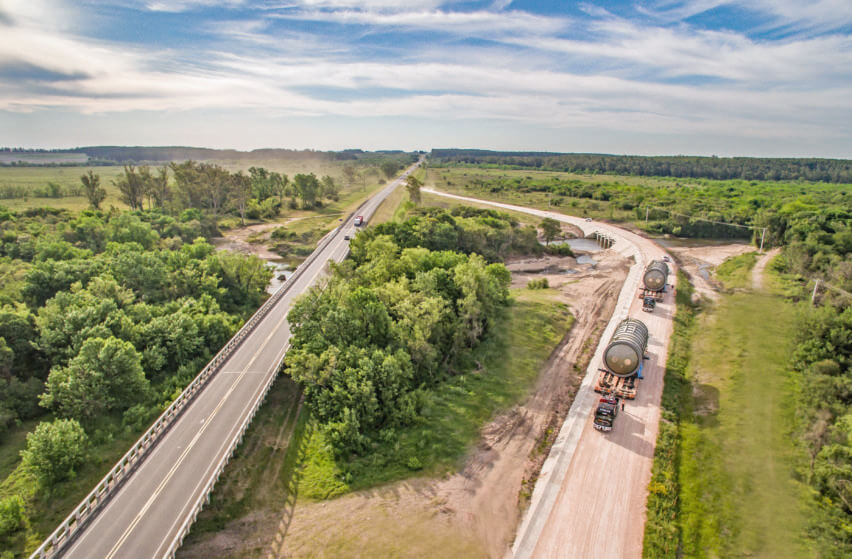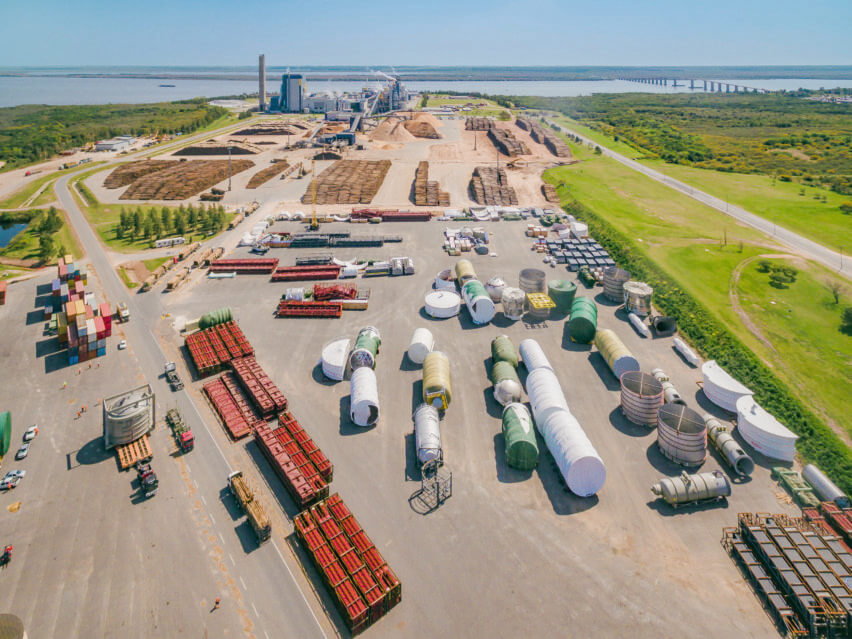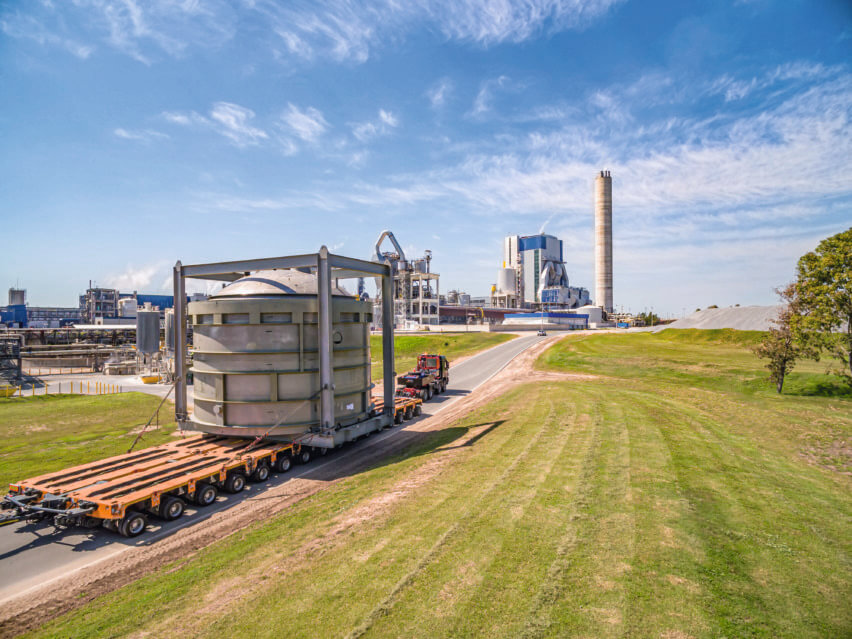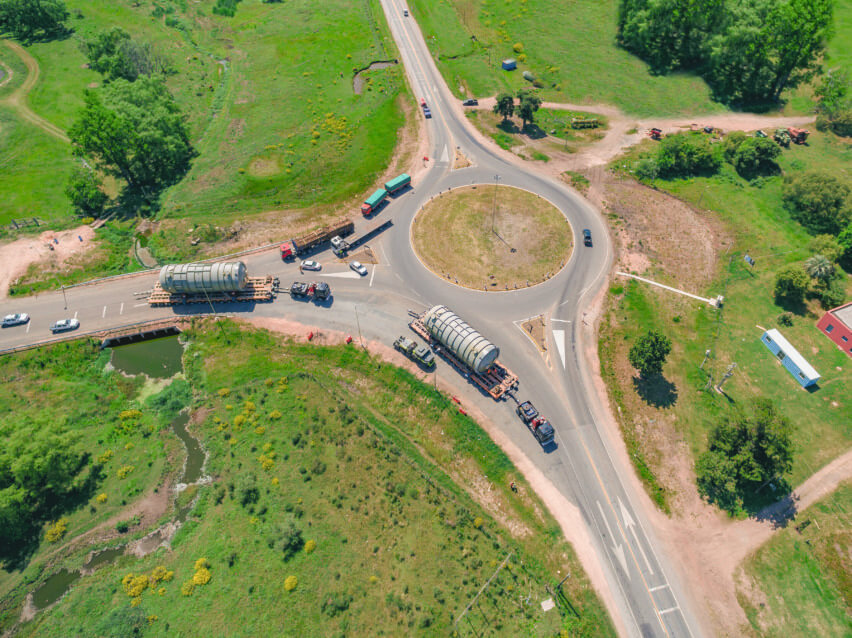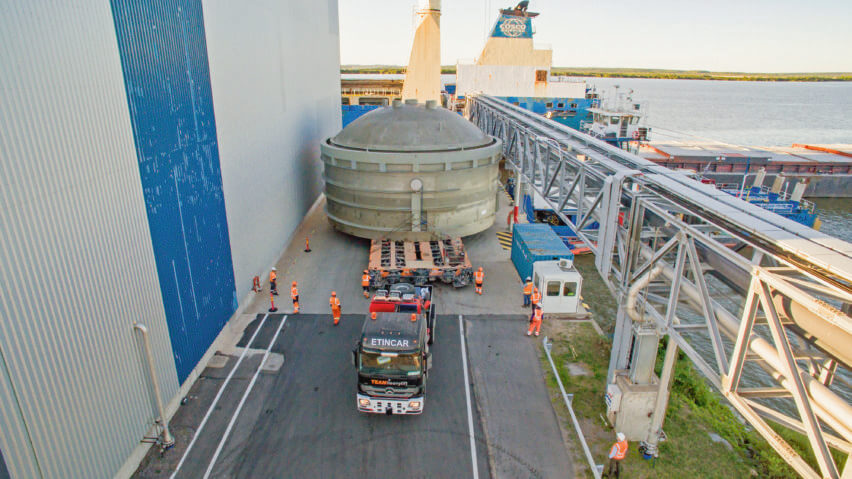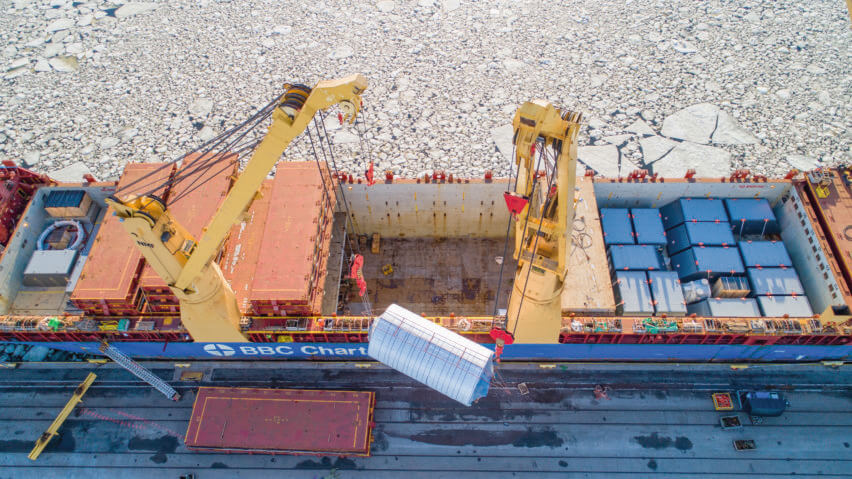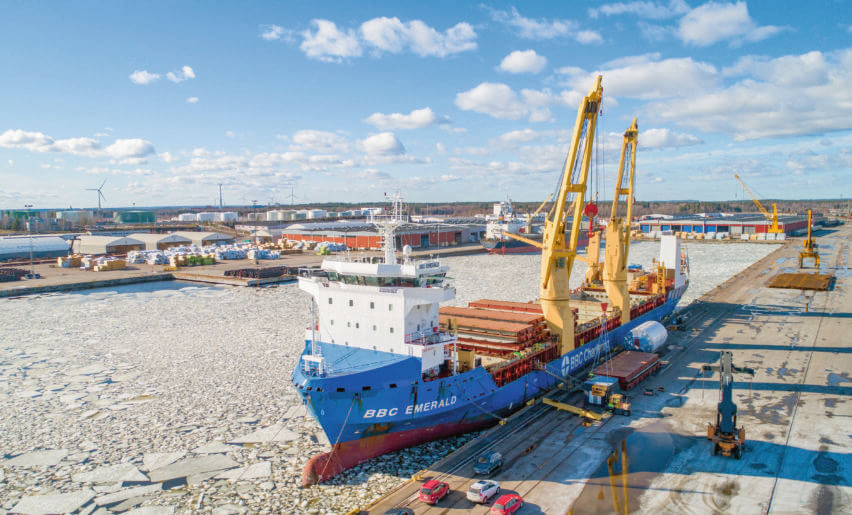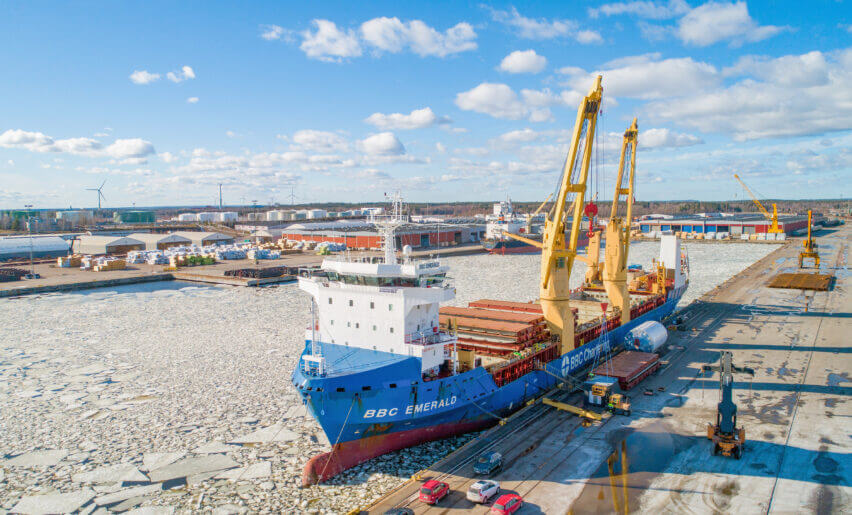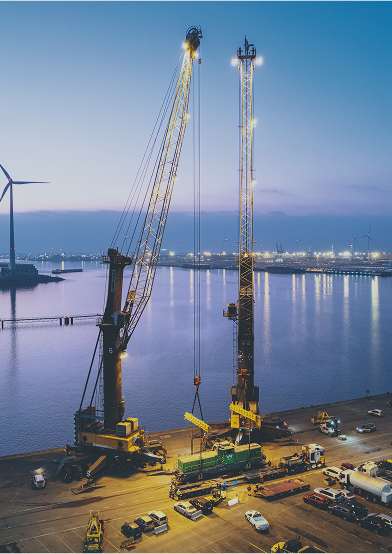Greenfield Eucalyptus Pulp Mill Starts Production – deugro Moved 263,300 Freight Tons for UPM Taurus Project
deugro successfully executed the logistical mega project Taurus, which has set a new record in Uruguay with the highest, widest and heaviest cargo ever transported on Uruguayan roads. After deugro successfully moved a total of 263,300 freight tons, including 8,000 containers and 174 OSHL packages for its client UPM, the pulp mill recently started up production.
deugro China, Finland, Germany and Uruguay handled the extensive planning and execution spanning 3.5 years, together as a global team in collaboration with its sister company dteq Transport Engineering Solutions (dteq). The project included one of the most complex overland transportation concepts ever planned by deugro group—developed over a full year—in close cooperation with the Uruguay Ministry of Transport and the client UPM.
UPM had an existing pulp mill in Fray Bentos, Uruguay and decided to invest in a second, larger pulp mill in Paso de los Toros. This production site, located in the central region of Uruguay, went into service in April of this year.
The pulp mill equipment needed for this large-scale project was shipped from global origins to the port of Montevideo, whereas the oversized cargo was unloaded at Fray Bentos, the location of the already existing UPM pulp mill. When the shipments started—mainly from China, Estonia, Finland and Germany—the market was at an all-time high regarding vessel capacity demand due to the impact of COVID-19 mandates. The shortage of container equipment and space led to a significant increase in shipping costs. By combining the breakbulk shipments with containers on the same breakbulk vessels, deugro solved the space issues and avoided extremely high freight charges for the client. Because of its long-standing experience, deugro was able to easily adapt the increased complexity in planning this solution caused.
The oversized cargo unloaded at Fray Bentos had to be moved through the existing pulp mill, considering the operations at the active work environment. All items were unloaded and stored at a laydown area first, before being loaded for the 230-kilometer road transportation to the location of the new pulp mill in central Uruguay. The roads needed to be prepared for the massive and oversized cargo: by building at total of 28 bypasses and new high-tension cable line masts, removing or adjusting 1,106 traffic signs and poles as well as 59 overhead obstacles, reinforcing 23 culverts, and much more.
The main challenge of the road transportation was to bypass a dam. This was executed by developing a customized heavy lift ferry concept with a modular barge. Dedicated transport engineering personnel operated and supervised the barge during operation. The barge crossed the Rio Negro River around 700 times in total to move all the project cargo safely to the other side of the dam at Baygorria Reservoir. “Our tailor-made barge design was the solution that finally led to obtaining the go-ahead for the whole project, as the dam at Baygorria built the critical link of the entire transportation,” said Franklin Alvarez, Regional Director Transport Engineering Americas, dteq Transport Engineering Solutions. “We designed a modular self-propelled barge fitting the specific needs of the project. It is capable of performing roll-on and roll-off operations and is constructed of interlocking pontoons.”
“The combination of deugro Finland’s industry knowledge, the local experience of deugro in South America and the technical excellence from dteq led to the successful project execution. The involvement from deugro offices in China and Germany, which locally coordinated the cargo shipped via Hamburg and various Chinese ports, ensured smooth execution,” said Mark Hollenstein, President – South and Central America, deugro.
“With this great team effort, I’m really delighted that deugro delivered all the main equipment for the pulp mill,” said Matias Setälä, President Scandinavia and Eastern Europe, Global FCL Procurement & Tender Management. “We are honored to have been UPM’s logistics partner for this logistics project, especially considering the significant number of 7,000 jobs that have been created through the value chain, as well as approximately 10,000 induced jobs and a 2% increase in GDP for the Uruguay economy.”
“For me, it has been a very enriching experience—both professionally and personally,” said Pablo Labandera, National Director at the Ministry of Transport and Public Works, Uruguay. “I understand that this project is of very important magnitude. It will also have a transcendent positive impact in the coming years, which will surely serve to some extent as an example regarding the instrument of working methodology.”
